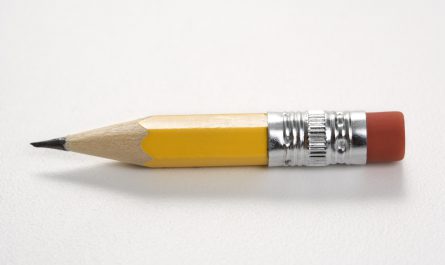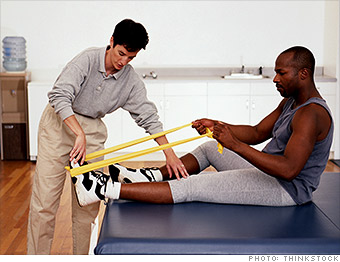Secondary Education Major prepares individuals to teach students in the secondary grades, which may include grades seven through twelve, depending on the school system or state regulations. May include preparation to teach a comprehensive curriculum or specific subject matter.
Is Secondary Education right for you? Take the free College Major Quiz – Start Now
What kind of students major in Secondary Education?
Individuals in this major have an interest in teaching and continuing their involvement in the area of education. As professional instructors they will contribute to keeping today?s children well prepared for the future through education and perhaps a little personal creativity. These people enjoy the prospect of teaching and making as good of a positive impact on their students? futures as possible.
Colleges offering a program in
Secondary Education:
There are 2129 schools with instructional programs related to Secondary School Teachers, Except Special and Career/Technical Education.





Bachelor’s Degree or Master’s Degree usually needed for this career to be successful.
What courses do most students take in college?
The required and elective courses you would take for Secondary Education majors vary considerably among institutions. Courses are listed here that are illustrative of the breadth of topics you are likely to experience were you to major in this field.
- Biology
- etc.)
- Child Development
- Curriculum Development
- Education of the Exceptional Child
- Educational Computing and Technology
- Methods of Teaching
- Philosophy of Education
- Practicum
- Psychology of Learning
- Reading in the Content Area
- Social Foundations of Education
- Student Teaching
- Teaching (Art
- Teaching the Handicapped Child
Related Majors to Secondary Education?
- Adult and Continuing Education and Teaching
- College Student Counseling and Personnel Services
- Counselor Education/School Counseling and Guidance Services
- Early Childhood Education and Teaching
- Education/Teaching of Individuals in Early Childhood Special Education Programs
- Education/Teaching of Individuals in Elementary Special Education Programs
- Education/Teaching of Individuals in Junior High/Middle School Special Education Programs
- Education/Teaching of Individuals in Secondary Special Education Programs
- Education/Teaching of Individuals Who are Developmentally Delayed
- Education/Teaching of Individuals with Autism
- Education/Teaching of Individuals with Emotional Disturbances
- Education/Teaching of Individuals with Hearing Impairments Including Deafness
- Education/Teaching of Individuals with Intellectual Disabilities
- Education/Teaching of Individuals with Multiple Disabilities
- Education/Teaching of Individuals with Orthopedic
What are your future career options as a Secondary Education Major?
- Preschool Teachers, Except Special Education
- Kindergarten Teachers, Except Special Education
- Elementary School Teachers, Except Special Education
- Middle School Teachers, Except Special and Career/Technical Education
- Career/Technical Education Teachers, Middle School
- Career/Technical Education Teachers, Secondary School
- Special Education Teachers, Preschool
- Special Education Teachers, Kindergarten and Elementary School
- Special Education Teachers, Middle School
- Special Education Teachers, Secondary School
- Special Education Teachers, All Other
- Adapted Physical Education Specialists
Remember your intended major does not always equal a clear career. Using your education in Secondary Education can lead to a diverse listing of career fields.
What does a Secondary Education Major do in their day to day career?
- Confer with parents or guardians, other teachers, counselors, and administrators to resolve students’ behavioral and academic problems.
- Guide and counsel students with adjustment or academic problems, or special academic interests.
- Meet with other professionals to discuss individual students’ needs and progress.
- Attend professional meetings, educational conferences, and teacher training workshops to maintain and improve professional competence.
- Adapt teaching methods and instructional materials to meet students’ varying needs and interests.
- Establish and enforce rules for behavior and procedures for maintaining order among students.
- Establish clear objectives for all lessons, units, and projects and communicate those objectives to students.
- Observe and evaluate students’ performance, behavior, social development, and physical health.
- Prepare for assigned classes and show written evidence of preparation upon request of immediate supervisors.
- Prepare reports on students and activities as required by administration.
- Meet with parents and guardians to discuss their children’s progress and to determine priorities for their children and their resource needs.
- Prepare students for later grades by encouraging them to explore learning opportunities and to persevere with challenging tasks.
- Enforce all administration policies and rules governing students.
- Prepare objectives and outlines for courses of study, following curriculum guidelines or requirements of states and schools.
- Prepare materials and classrooms for class activities.
- Plan and conduct activities for a balanced program of instruction, demonstration, and work time that provides students with opportunities to observe, question, and investigate.
What work activities are required of most Secondary Education Majors?
| Importance | Activities |
|---|---|
| Training and Teaching Others – Identifying the educational needs of others, developing formal educational or training programs or classes, and teaching or instructing others. | |
| Organizing, Planning, and Prioritizing Work – Developing specific goals and plans to prioritize, organize, and accomplish your work. | |
| Getting Information – Observing, receiving, and otherwise obtaining information from all relevant sources. | |
| Communicating with Supervisors, Peers, or Subordinates – Providing information to supervisors, co-workers, and subordinates by telephone, in written form, e-mail, or in person. | |
| Coaching and Developing Others – Identifying the developmental needs of others and coaching, mentoring, or otherwise helping others to improve their knowledge or skills. |
Required skills for most Secondary Education Majors:
| Importance | Skills |
|---|---|
| Learning Strategies – Selecting and using training/instructional methods and procedures appropriate for the situation when learning or teaching new things. | |
| Instructing – Teaching others how to do something. | |
| Speaking – Talking to others to convey information effectively. | |
| Active Listening – Giving full attention to what other people are saying, taking time to understand the points being made, asking questions as appropriate, and not interrupting at inappropriate times. | |
| Critical Thinking – Using logic and reasoning to identify the strengths and weaknesses of alternative solutions, conclusions or approaches to problems. |
Required knowledge for most Secondary Education Majors:
| Importance | Knowledge |
|---|---|
| Education and Training – Knowledge of principles and methods for curriculum and training design, teaching and instruction for individuals and groups, and the measurement of training effects. | |
| English Language – Knowledge of the structure and content of the English language including the meaning and spelling of words, rules of composition, and grammar. | |
| Psychology – Knowledge of human behavior and performance; individual differences in ability, personality, and interests; learning and motivation; psychological research methods; and the assessment and treatment of behavioral and affective disorders. | |
| Computers and Electronics – Knowledge of circuit boards, processors, chips, electronic equipment, and computer hardware and software, including applications and programming. | |
| Mathematics – Knowledge of arithmetic, algebra, geometry, calculus, statistics, and their applications. |
Work styles for Secondary Education Majors:
| Importance | Styles |
|---|---|
| Integrity – Job requires being honest and ethical. | |
| Dependability – Job requires being reliable, responsible, and dependable, and fulfilling obligations. | |
| Self Control – Job requires maintaining composure, keeping emotions in check, controlling anger, and avoiding aggressive behavior, even in very difficult situations. | |
| Leadership – Job requires a willingness to lead, take charge, and offer opinions and direction. | |
| Stress Tolerance – Job requires accepting criticism and dealing calmly and effectively with high stress situations. |
There are many professional associations to further your career based as a Secondary Education Major:
Professional Education Associations
Great video to learn about what is secondary education, and how important it is to our everyday lives:





